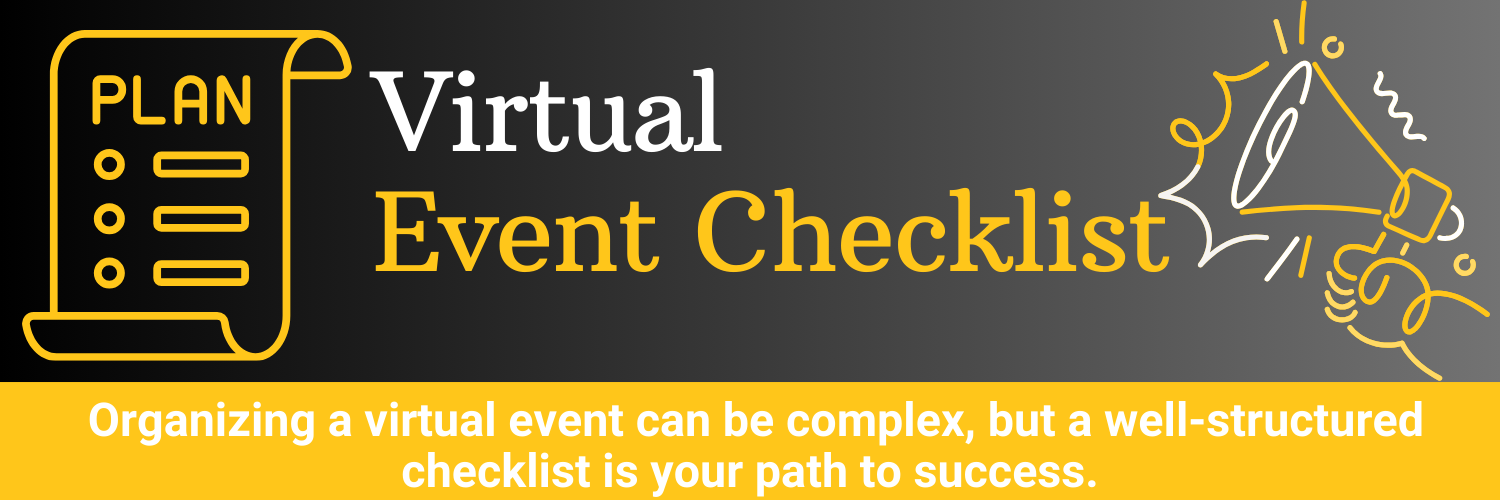In today’s fast-paced world, virtual events have become the go-to solution for businesses and organizations looking to connect with their audiences. Whether you’re planning a webinar, virtual conference, or a hybrid event, meticulous planning is the key to success. This blog will guide you through a checklist for hosting exceptional virtual events and highlight how VouchPro can partner with you to ensure a seamless experience.
To guide you, we’ve broken down the checklist into key phases:
- Pre-Event Preparation: The Foundation
-
- Establish Your Vision
- Identify the Event’s Purpose: Define the primary reason for your event – be it education, networking, sales, or other objectives.
- Set Event Goals: Determine what you intend to achieve, whether it’s increased brand awareness, lead generation, or knowledge sharing.
- Allocate a Budget: Clearly define your spending limit for organizing the virtual event.
- Research Event Technology:Explore available tools and platforms for hosting virtual events.
- Identify Event Type to Determine Format
- Webinars: Online seminars – decide whether to livestream content or use prerecorded videos.
- Virtual Conference: Resemble in-person conferences, hosted virtually with a structured agenda.
- Internal Hybrid Event: Company-specific events, involving both in-person and virtual attendees.
- External Hybrid Event: Inviting participants outside your organization, blending virtual and in-person attendees.
- Make Key Decisions
- Choose a Virtual Event Platform: Select a platform aligned with your event’s goals and format.
- Secure Sponsors and Partners: Seek financial support or collaborations from interested organizations.
- Line up Key Participants:Ensure you have hosts, exhibitors, and keynote speakers ready to engage your audience.
- Establish Your Vision
- Functional Aspect of the Event
-
- Determine the Title and Theme: Define the event’s theme and set a compelling title.
- Schedule Event Date and Time: Plan when your event will take place.
- Develop Sponsorship Opportunities: Identify potential sponsors and set sponsorship goals.
- Create an Event Timeline and Checklist: Organize the event’s tasks and milestones.
- Identify Session Topics and Contact Speakers:Prepare your agenda and reach out to speakers.
- Establish Your Event Team:Assign roles and responsibilities.
- Develop Event Branding:Create a logo, landing page, and branding materials.
- Initiate Marketing Efforts: Start with ‘save the date’ information.
- Set Ticket Pricing (if required): Determine the ticket structure.
- Plan Attendee Engagement:Chart how you’ll interact with your audience.
- Create a Program Agenda:Define the flow and timing of your event.
- Confirm Speaker Bookings:Ensure your speakers are booked and have submitted necessary information.
- Publicize Event Details:Market your event, including ticket prices and registration deadlines.
- Test the Event Platform:Ensure all systems are operational, including livestreaming with presenters.
- Finalize Sponsor and Vendor Details:Gather logos and information.
- Test Features:Verify the functionality of interactive elements like surveys and polls.
- Prepare for Post-Event Activities:Create a survey for feedback.
- Provide Attendees Information:Ensure participants know how to access and navigate the event platform.
- Set Up Technical Support:Establish a support team and share contact information.
- During the Event
-
- Coordinate with Your Team:Discuss any last-minute updates.
- Support Presenters:Provide tech support information.
- Execute Social Media Promotion:Engage with attendees throughout the event day.
- Send Event Reminders:Keep participants informed.
- Check Equipment:Ensure vendor equipment is functioning.
- Troubleshoot Issues:Address any problems promptly.
- After the Event
-
- Gather Feedback:Collect input from attendees and speakers, distribute post-event surveys.
- Analyze Event Analytics:Evaluate metrics from your event platform.
- Debrief and Review Goals:Discuss outcomes with your team, review objectives and metrics.
- Financial Wrap-up:Balance your budget, pay invoices.
- Thank and Follow Up:Express gratitude to sponsors, donors, participants, vendors, and respond to inquiries.
A well-structured virtual event checklist is your guide to hosting a successful event, no matter the format. Should you require support, VouchPro is here to offer expertise in virtual event solutions, technology, and event management, elevating your event’s success and ensuring a memorable experience for your attendees. Contact us to explore collaboration and enhance your virtual events.







